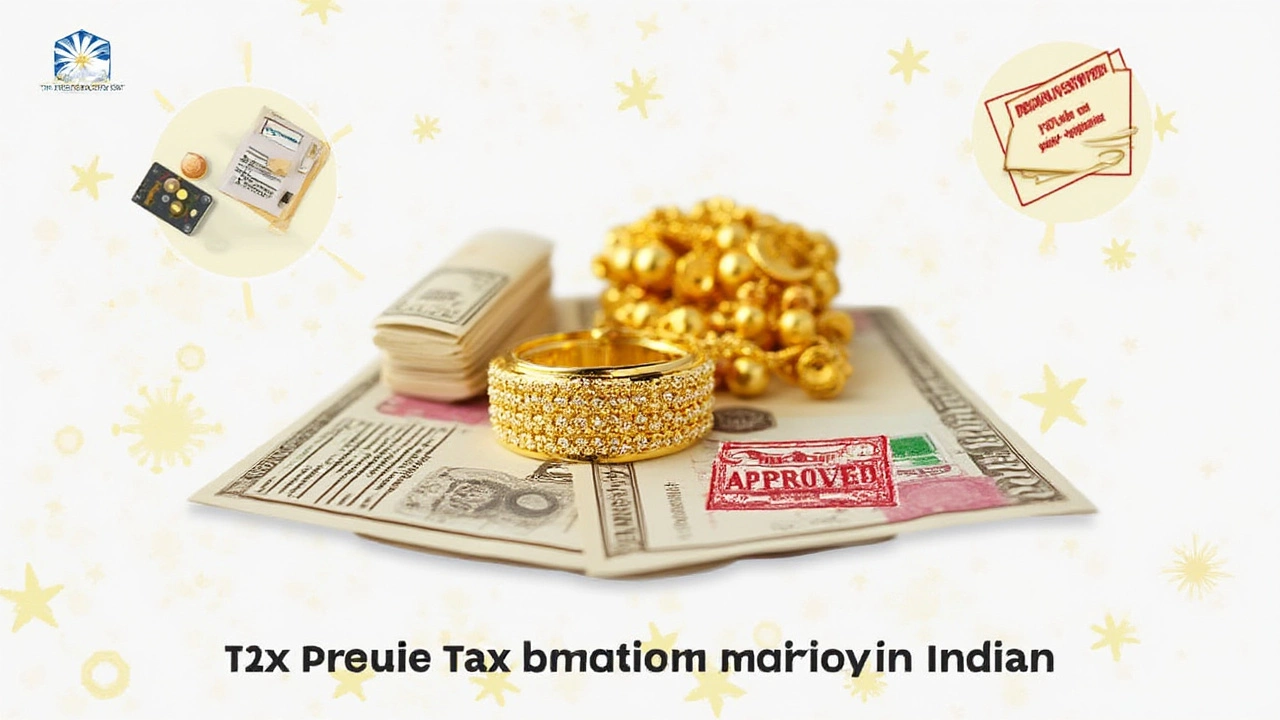Even in 2025, the magic of gold never fades in Mumbai. I’ve lost count of how many neighbors use their bangles, coins, or even dusty family heirlooms as a financial lifeline. It’s quick, private, and you walk out with cash hours after stepping into a gold loan branch. But there’s one question that keeps popping up in chai discussions: “Is gold loan taxable in India?” The rules confuse people so much that relatives send WhatsApp forwards with random numbers and tax threats. So, let’s unravel exactly what’s taxable, what paperwork matters, and some smart tips to save headaches when dealing with gold-backed loans in India.
Gold Loan Basics: What Are You Really Borrowing?
Before plunging into tax details, it helps to strip gold loans down to their basics. When you take a gold loan in India, you’re handing over your gold—anything from a thin antique chain to those chunky 22K wedding bracelets—as security for a cash loan. It’s not a sale; you still own the gold. Lenders (banks, NBFCs, even co-operative societies) assess your gold’s value using the latest daily market price. You usually get 75% of the gold’s value as a loan, thanks to RBI rules designed to cushion against gold price drops.
These loans are usually short-term—from a few months to a year—and you pay interest on the borrowed amount. After repayment, you get your gold back. There’s zero trickery; you didn’t earn any money by pledging gold, you just borrowed against it. This distinction is what makes gold loans so popular when sudden expenses hit: medical bills, home repairs, or (my wife, Maya, will vouch) last-minute school fees. Indians took out over ₹1.5 lakh crores in gold loans in 2024 alone—proof that gold is the go-to financial cushion even in the age of digital wallets.
Is a Gold Loan Itself Taxable?
This is the burning question, right? The good news: A gold loan itself is NOT taxable in India. When you pledge your gold and receive money, the money is considered a loan, not income. The Income Tax Act makes this super clear. Loans—whether personal, business, or gold-backed—are liabilities. They aren’t classified as income since you’re contractually obligated to repay them. The lender charges interest, you pay it, and once you settle the loan, you collect your ornaments and you’re done. The Income Tax Department isn’t interested in your gold loan, as long as you’re not trying to pass borrowed funds as untaxed income.
However, there are a few situations where you might face awkward questions from tax authorities. Suppose you receive a very large gold loan (say, above ₹2 lakh in cash, which is illegal nowadays per Section 269SS of the Income Tax Act), or you suddenly repay a big fat gold loan from unexplained, cash-rich sources. In such cases, be ready to explain the source of funds if the taxman comes calling. The rule is simple: Borrow in a transparent way—ideally through cheques or bank transfers—so every rupee is traceable. Remember, the tax authorities aren’t obsessed with your loans, but they do chase tax evasion disguised as friendly loans. For most salaried folks, students, or small business owners, having a gold loan isn’t something that adds to your taxable income. Relax, your gold loan doesn’t jack up your tax bill.
Gold Loan Repayment, Interest & Income Tax: What’s Tax Deductible?
Here’s where things get interesting—the tax angle for repayments. Think about the regular gold loan: you borrow a lump sum, pay monthly or lump-sum interest, and return the principal to get your gold back. Now, is the interest paid on a gold loan tax-deductible? For most people, no. If you’re taking a gold loan for personal expenses—maybe for family medical emergencies, education, weddings, or, my favorite, renovating a crumbling kitchen—the interest is NOT eligible for any deduction under sections like 80C or 24(b) of the Income Tax Act. You simply pay the interest, smile at the lender, and file away the receipt.
There’s a little-known twist, though. If you use the gold loan specifically for creating taxable income—like investing the borrowed money into your business, buying a property for rental, or, less commonly, in trading—then some sections provide tax relief. For example, interest on a gold loan taken for business purposes can be shown as a business expense. It lowers your profit, reducing the overall tax you pay. If you use the loan for buying a house (but that’s rare because most home buyers go for home loans), the interest might be eligible for deduction under Section 24(b), up to ₹2 lakh per annum, provided you can prove the link between loan and asset purchase.
So, if you’re self-employed or run a small business in Mumbai’s thriving markets, keep records showing the loan was used for business needs. That means proper transfer from loan account to business account, not a late-night ATM withdrawal for shopping! For personal use, though, forget about claiming any deductions—the interest you pay on a gold loan is just a cost, nothing more. But don’t lose your receipts; if tax officers ever question your transactions, solid documentation will prove your case.

Capital Gains, Selling Gold, and Tax Liability
Imagine this: you pledge your gold, fail to repay the loan (it happens more often than you think), and the lender sells your gold to recover their money. Or, maybe you decide to settle the loan, reclaim your gold, and then sell it to raise funds. Do you have to pay capital gains tax? Yes, but only in the context of selling gold, not on the loan itself.
Here’s what matters: if you sell your gold (after getting it back from the lender), you must disclose the sale in your income tax return. The capital gains tax rules kick in. If you held the gold for less than 3 years, it’s a short-term gain (taxed at your slab rate). If you held it for 3 years or more, it turns into long-term capital gains, taxed at 20% with indexation (which basically adjusts for inflation, making your tax bite lighter). If your pledged gold gets auctioned by the lender, technically, you should report this as a 'sale' and pay tax on any gain, though many folks simply ignore this. Banks, however, often issue auction notices, and records do exist—so expect the Income Tax Department to be curious if the values are significant.
One quirky story: a friend lost her gold bangles to the lender after missing payments for two years. She received a notice from the bank’s legal team, and then months later, a query from the IT department about an unexplained sale of jewelry. Moral of the story? Even if losing your gold feels like rubbing salt into the wound, you owe taxes on any capital gain between the value you pledged and the amount received from the auction (minus acquisition cost and loan principal/interest).
To keep things clear, here’s an easy table for reference:
| Scenario | Tax Applicable? | Notes |
|---|---|---|
| Gold loan received | No | Not income, just a loan |
| Interest paid on gold loan (personal use) | No deduction | Expense, not deductible |
| Interest paid (business use) | Yes (as expense) | Keep documents for proof |
| Sale of gold after loan repayment | Yes (capital gains) | Short/long term rules apply |
| Gold auctioned by lender | Yes (capital gains) | On difference between selling price and acquisition |
Tips to Avoid Tax Trouble with Gold Loans
After years of juggling paperwork, chats with CAs, and a fair bit of panic during tax season, I can share some hands-on advice for making your gold loan journey safe and stress-free:
- Never accept or repay gold loans in large cash amounts. As per Section 269SS, loans above ₹20,000 must be accepted through traceable banking channels. Breaking this rule can attract stiff penalties—sometimes as high as the loan amount!
- Always ask for receipts and a proper loan sanction letter. Some gold loan lenders, especially smaller NBFCs outside big metros, get lax about documentation. Don’t let that happen—you want a paper trail.
- Maintain a clear record of why you borrowed and how you repaid the gold loan. If it’s for business, route the money through your business account, not mixed up in personal spending.
- If you later sell the gold (after loan closure), keep your gold purchase proof handy—purchase bill, inheritance letter, or, if it’s family jewelry, any old will or photos that show ownership.
- If the lender auctions your gold due to non-payment, collect documentation (auction notice, sale report, loan closure statement) so you can correctly report any tax liability, if required.
- Try to use leading banks or RBI-registered NBFCs rather than shady pawnshops. Bigger lenders follow KYC, maintain proper logs, and even update your CIBIL score as you repay.
- If the interest paid on a gold loan is eligible for business deduction, claim it with supporting bills/invoices. Don’t just enter random numbers on your tax returns—it could attract scrutiny.
- Always check current RBI norms and Income Tax updates. For example, the maximum Loan-to-Value ratio, currently at 75%, is revised every few years depending on gold market volatility.
Trust me, paperwork may seem boring, but nothing kills tax headaches like clear, careful documentation. You’ll thank yourself when you don’t have to panic-hunt for a ten-year-old gold purchase bill or loan receipt during tax scrutiny.
Quick FAQs and Common Confusions Solved
I keep getting rapid-fire questions in DMs and family groups, so here’s a quick rundown for clarity:
- Is a gold loan considered income? No, a gold loan is a liability. You’re borrowing, not earning.
- Do I pay tax on money I receive from a gold loan? Nope. The money is not taxable. Only interest or sales profits (in special cases) attract taxes.
- If I repay a gold loan in cash above ₹20,000, will I be penalized? Potentially yes. Income Tax authorities can fine both you and the lender for non-compliance under Section 269T.
- Is gold loan interest deductible under 80C? Not for personal expenses—only for eligible uses like business or property purchase (with strict proof).
- What happens if my pledged gold is auctioned? You might need to report any capital gains from the sale, especially if the amount is large and the bank provides sale information to tax officials.
- If I use a gold loan for my small shop, can I claim tax benefits? Absolutely—just be sure your books clearly show the loan was used strictly for business.
- Do banks report gold loans to tax authorities? Most large banks and NBFCs have to report high-value loans, repayment, and auction details to regulators. Don’t try to outsmart the system!
Here’s a tip: If you’re confused about any entry on your ITR, ask a CA or do a quick check using the free tools on the Income Tax site. Don’t rely on coffee shop advice or random Twitter threads. Gold loans are honest money tools when used right, and, with a digital India on the rise, every transaction leaves a footprint. Be smart—document well, use the right channels, and relax knowing your precious gold can smooth over tough times without drawing tax headaches. Now, if only dealing with Mumbai’s traffic was this simple!
